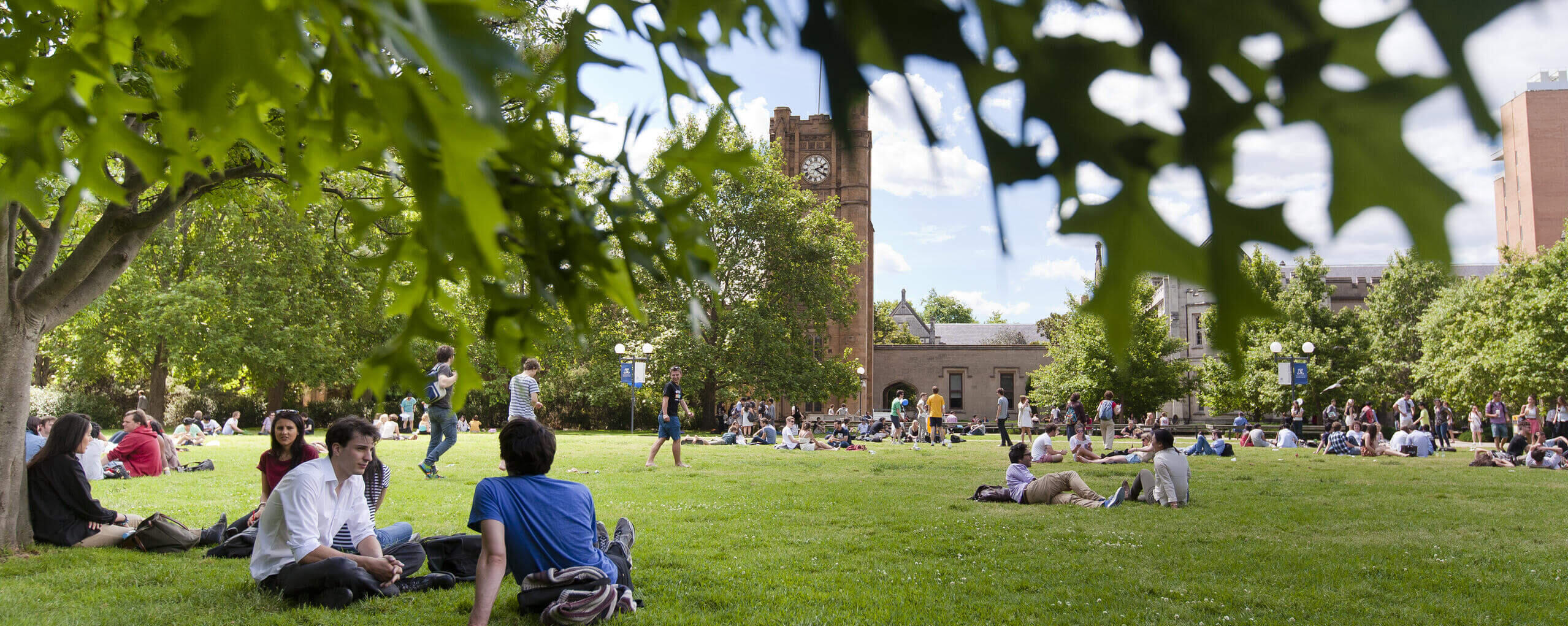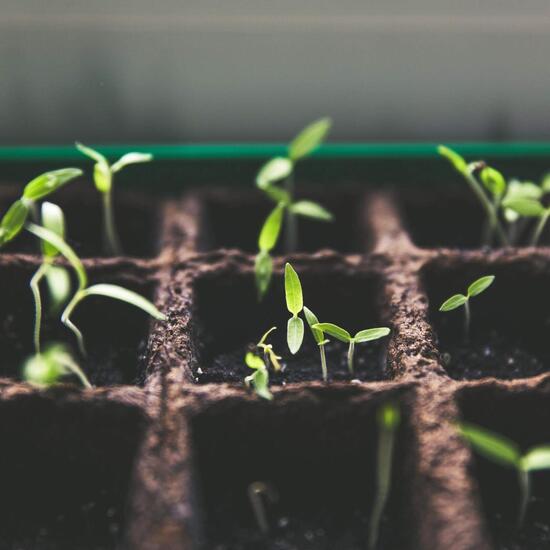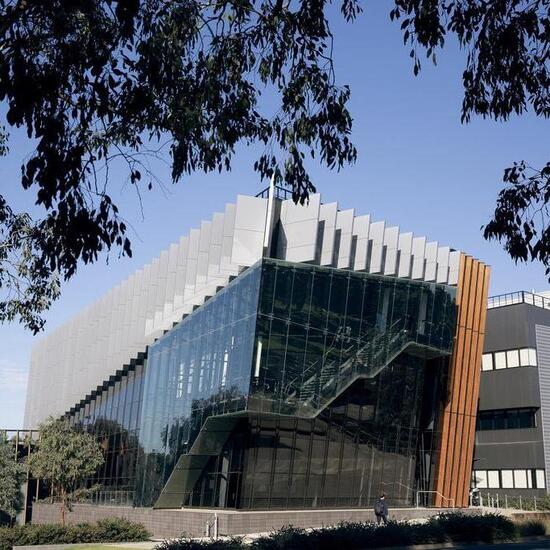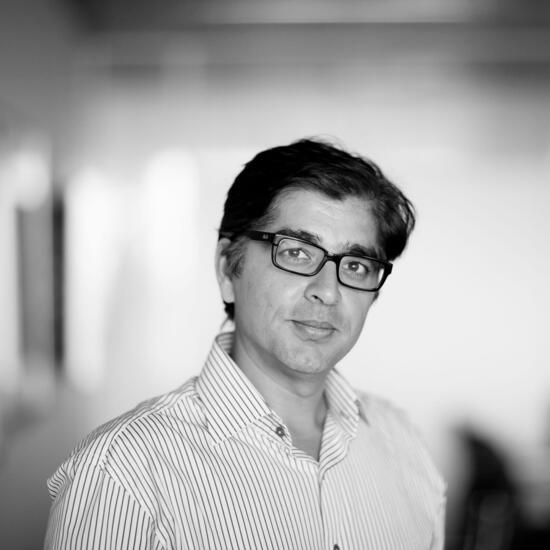
26.09.2019
Melbourne Business School:
A brief interview with Professor Doctor John Haisken-DeNew
Research at Melbourne Business School has the best international reputation. What is most important to you about research at MBS and why would you encourage international research students to come to MBS?
The Faculty of Business and Economics is an excellent research environment that rewards initiative, engagement and research. You'll find you are either working with Australia’s best and brightest or are able to gain access to the nation's leading researchers and thinkers at conferences, workshops and as part of research visits. The world’s experts regularly visit to work with academic staff like myself and graduate research students.
The Melbourne Institute, for example, is a very international group in which North America, Europe and Asia are extremely well represented, providing a unique resource to its own team: the diversity of experience. Together with the Department of Economics, the Faculty of Business and Economics employs the largest group of empirical economists in the country.
I believe Melbourne offers a unique gateway from Europe to Australia. There is a strong European community here in Melbourne and this is reflected in the restaurant scene, the Queen Victoria Market, and the widest range of sporting events in the country.
Some people complain that it rains in Melbourne. I think the advantage is that it DOES rain in Melbourne and there is some beautiful lush vegetation all year round, whether European or Australian in origin, whereas many other areas have water issues. Melbourne has cultural activities, sport activities and many nature-areas such as the nearby Mornington Peninsula, the vineyards of the Yarra Valley and the stunning coastlines of the Great Ocean Road and the 12 Apostles.
The Melbourne Institute is part of the PhD program in Economics, which leads the country and indeed the region in economics teaching and research. Our 2+3 program of two years of coursework and 3 years of dissertation was the first in the entire region. Combined with full stipends and fully waived graduated school fees, we thus offer the best support for graduate students. PhD students have access to advisors from the Melbourne Institute and the Melbourne Business School’s two campuses, so they have the best of all worlds!
Why would you recommend German students an international research experience in Australia?
Melbourne is Australia’s most cosmopolitan city. It regularly features in the Economist Intelligence Unit’s “ World’s Greatest Cities” lists in the top spot. If you like street art, for example, it has some of the best technicolour stenciled and sprayed cobblestone laneways and alleys in the world. Melbourne has a beach culture to suit any taste – from St Kilda’s Art Deco, hipster vibe to Williamstown’s 19th century family-friendly foodie beach (right across from a lovely botanical garden perfect for Spring picnics) through to the legendary surfing beaches of Bells Beach and Phillip Island. If you want to experience Australian native flora and fauna, Healesville Sanctuary, the Werribee Safari Park and the Royal Melbourne Zoo are some of Melburnians’ favourite places to visit.
Melbourne’s also the cool brunch capital of Australia – on the weekend, families and friends head to cafes and restaurants. Brunch (a play on the words ‘breakfast’ and ‘lunch’), is a very social affair! There is always something to do during the week or the weekend, with musicals, theatre, museums. There is also a very strong Indigenous Australian culture and history, which you will see represented in dance, music, food and sacred spots across the city.
What do you like about supervising international PhD candidates?
I think the best thing about being a supervisor is seeing students grow and experience the excitement of intellectual curiosity and discovery. Our graduate students working tenaciously on a complicated project and discovering something new is pure gold for me.
We have a lot of international students and this is one of the strengths of our program. These students enrich the program with their insights, the desire often to work on research projects of direct relevance to their home countries, making it very real. Being in a new country anywhere can be challenging. I too have been a foreigner in a host country for 30 years and I personally know how it can be. However, we make sure that all are integrated into the program with our cohort focus and allow people to grow and become international ambassadors for their research and our research program. The friendships made here will surely last a lifetime.
And finally…
We asked Max Theilacker (PhD Melb MTechMgmnt BSc TU Munich) and Miriam Guenther (PhD Melb MIB Macquarie BA U App Sci Ludwigshafen) for some comments from recent German graduates of the PhD Program in Management and Marketing.
Why would you recommend Australia as a graduate research destination for German students?
“The setup of the PhD program (similar to the US or England) is very different to that in Germany where graduates tend to be employed as researchers, handling projects and teaching classes alongside the PhD research. Funding and support, I believe, are far superior here, especially the funds for research start-up and conferences etc. Also, the much larger cohort size and support structures help with to make the PhD a less solitary project.”
- Max Theilacker
“1) Funding: A barrier might be that German students think that they will have to pay tuition fees, so it’s important to make clear to them that they have good chances to get a scholarship.
Living allowance comes without further requirements: German PhD students get paid as employees, but that comes with expectations such as teaching obligations. Here, students can take on casual teaching, but get paid extra for this activity.
PhD budget: The budget is generous and guaranteed after confirmation. I’m not sure about the German system, but I would assume they would need to ask their supervisor for each expenditure item and approval can depend on the supervisor’s budget or even external funds he/she attracted.
2) Job prospects: Doing the PhD here sets the student up for an international career (English language skills, networks and so on). It can be a bit of a barrier to start a job abroad if you have completed your PhD at home in Germany. Also, in Germany, it’s extremely difficult to find a continuous academic position after you graduated. The exception is if you were at one of the major chairs (four in Marketing); then you have quite good job prospects when you have a number of A* publications. But only few get a PhD position at those four universities in the first place and fewer even get several publications at that level.”
- Miriam Guenther
What’s the most attractive feature of the city of Melbourne for you as a continental European?
“Melbourne reminds me of European capital cities in many ways (e.g., the coffee culture). So it’s a bit of home away from home. But at the same time the city has much to offer you don’t get at home. The beautiful surrounding and wildlife, the reversed seasons and so on. It makes for a great time next to work.”
- Miriam Guenther
“Probably that Melbourne feels relatively European compared to other cities in Australia. This might not be true, but it feels like there are more expats here, it's more multicultural, has great offerings in terms of culture, sports etc. To me, Melbourne feels more like a large European city, whereas Sydney or Brisbane feel more Australian.”
- Max Theilacker
What did you know about Australia before you started your PhD with us?
"A bit, as I had completed my Master degree in Sydney. I was back then “recruited” through organisations like GOstralia! that offered study information about Australia at local universities when I did my UG degree. But it was also personal interest. My dad had lived in Indonesia when he was younger, so we had books and souvenirs also from Australia at home.
- Miriam Guenther
How was your experience as a graduate researcher at MBS? Was it a positive one? If so, what made it so?
“It was definitively positive, overall. In many ways, I think it's the combination of what I've described above that made it interesting for me: the research and support environment, the city itself, possibilities to travel within Australia but also to go to conferences overseas.”
- Max Theilacker
”Yes, it was a positive experience. I think, resources are excellent (not only funding but also available databases for example). I also think that it is great that the university offers MECAF positions to gain first job experience and get some time to develop your publications after graduation. In addition, I liked the relaxed, less formal atmosphere (in Germany that can be much more hierarchical where you may need to speak to your supervisor’s PA before you can meet him/her). The department system (as opposed to a chair built around one professor) also means that there is less ‘power concentration’.”
- Miriam Guenther


